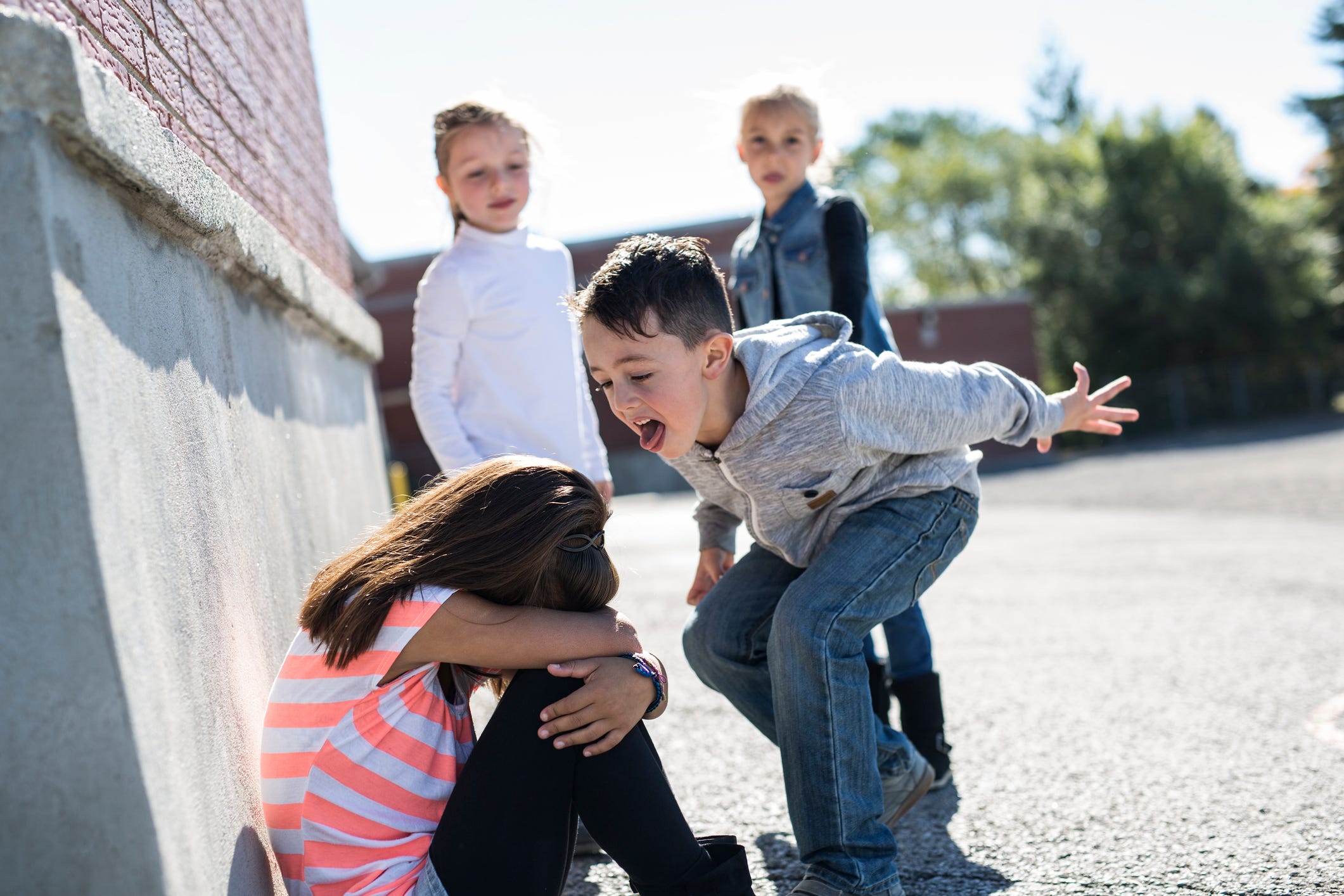Typically, bullying is like the dark cousin to prom, student elections, or football practice: Maybe you weren’t involved, but you knew that someone, somewhere was. In 2011, President Obama spoke against this inevitability at the White House Conference on Bullying Prevention. “With big ears and the name that I have, I wasn’t immune. I didn’t emerge unscathed,” he said. “But because it’s something that happens a lot, and it’s something that’s always been around, sometimes we’ve turned a blind eye to the problem.”

We know that we shouldn’t turn a blind eye: Research shows that bullying is corrosive to children’s mental health and well-being, with consequences ranging from trouble sleeping and skipping school to psychiatric problems, such as depression or psychosis, self-harm, and suicide. But the damage doesn’t stop there. You can’t just close the door on these experiences. You may doubt yourself, have trouble trusting people, and lack quality friendships. This lack of healing and closure is especially true if the bullying was never resolved or addressed when you were younger.
Consequently, you are likely still living with the damage to your self-esteem. These lingering effects do not simply go away just because you grew up. Research shows that adults who were bullied as a child are at an increased risk for anxiety disorders, depression, and suicidal thoughts.
There is hope for recovery. Here are ten things you can do to recover from the bullying you experienced as a child or as a teen.
/iStock-682968860-5a94871eff1b780036ff3ac1.jpg)
Acknowledge Bullying in Your Past
Victims of bullying often spend years minimizing the bullying, dismissing it, or pretending it didn’t happen. Or, they succumb to feelings of guilt, shame, or self-blame, believing if they had been different or tried harder the bullying would not have happened. The only way to begin the healing process is to recognize that the bullying occurred and that you were not responsible for it.2
Victims of bullying often deal with a host of health issues. These can include everything from insomnia, stress conditions, and headaches to a post-traumatic stress disorder, anxiety issues, and eating disorders.3 Be sure to talk to your doctor about any symptoms you are experiencing. Remember, bullying affects more than just your mood and self-esteem. It also can have a serious impact on your health. Take steps to take care of yourself.
Feelings of powerlessness and helplessness can carry over into adulthood. As a result, you run the risk of living your life as a perpetual victim. Realize that while you cannot control what happened to you, you can control your reaction. Start your recovery by taking control of your thoughts, emotions, and actions. It is also important to own your reactions and realize that you can choose to make healthy choices. You have a choice on how to live your life.
Bullying often causes people to lose confidence and self-esteem because it is packed with lies about your worth as a person.4 Reject the lies that the bully said about you and replace them with the truth about who you are. Focus on learning to be you again. To get started, write down your positive characteristics.
A big part of recovery from bullying is maintaining contact with supportive friends and family. Many times, victims of bullying isolate themselves and try to deal with the consequences of bullying on their own. If the bullying you experienced as a child keeps rearing its ugly head, consider talking with a counselor about your past. It also helps to talk with friends and family or find a support group in your area. The key is that you do not go through the healing process alone.
Seek Trauma Support
Sometimes healing from a childhood trauma like bullying requires outside help and support. Talk to your family doctor and get recommendations for a counselor that specializes in healing from childhood traumas.5 A counselor will help you process and make sense of what happened to you. He or she also will be able to point out any unhealthy coping mechanisms you are using.
Identify areas where you need to grow or heal. For instance, do you need to build your self-esteem or become more assertive? Likewise, you also may benefit from learning to set boundaries, taking a self-defense class, or joining a health club. Make a list of areas where you want to improve or change. It is best to make this list on your own rather than asking for someone else’s opinion. This way, you will own the changes you need to make. But if you are having trouble identifying your weaknesses, ask a close friend or family member what they see.
Change Your Thought Processes
Many times, people who are healing from childhood bullying ruminate about what they experienced or become obsessed with not experiencing that pain again. Learn ways to take your thoughts captive. Set goals and focus on things that make you happy or bring joy to your life.
Avoid focusing all your time and energy on your past pain and your current recovery. It is not healthy to think about the pain and what you endured all the time. Set aside specific times to deal with the issues but do not allow it to consume you.
An essential part of your recovery is to move beyond what has happened to you. While you need to acknowledge how bullying impacted you, you also need to detach from it at some point. The bullying you experienced does not define who you are. Instead, rediscover who you are and close the door on the past. Some victims of bullying have found that writing a letter (that you never mail) to the bullies helps them find closure on what happened. Doing so, allows you to express all the pain and anger you were unable to express when you were a child.
Childhood bullying leaves deep scars and recovery is not a quick process, especially if you did not deal with the bullying when it occurred. As a result, you likely have a number of wrong perceptions and bad habits to break. Celebrate your progress no matter how small and give yourself time and space to heal. The changes may be small and slow but they are still changes. One day you will wake up and see a new person looking back at you in the mirror.

